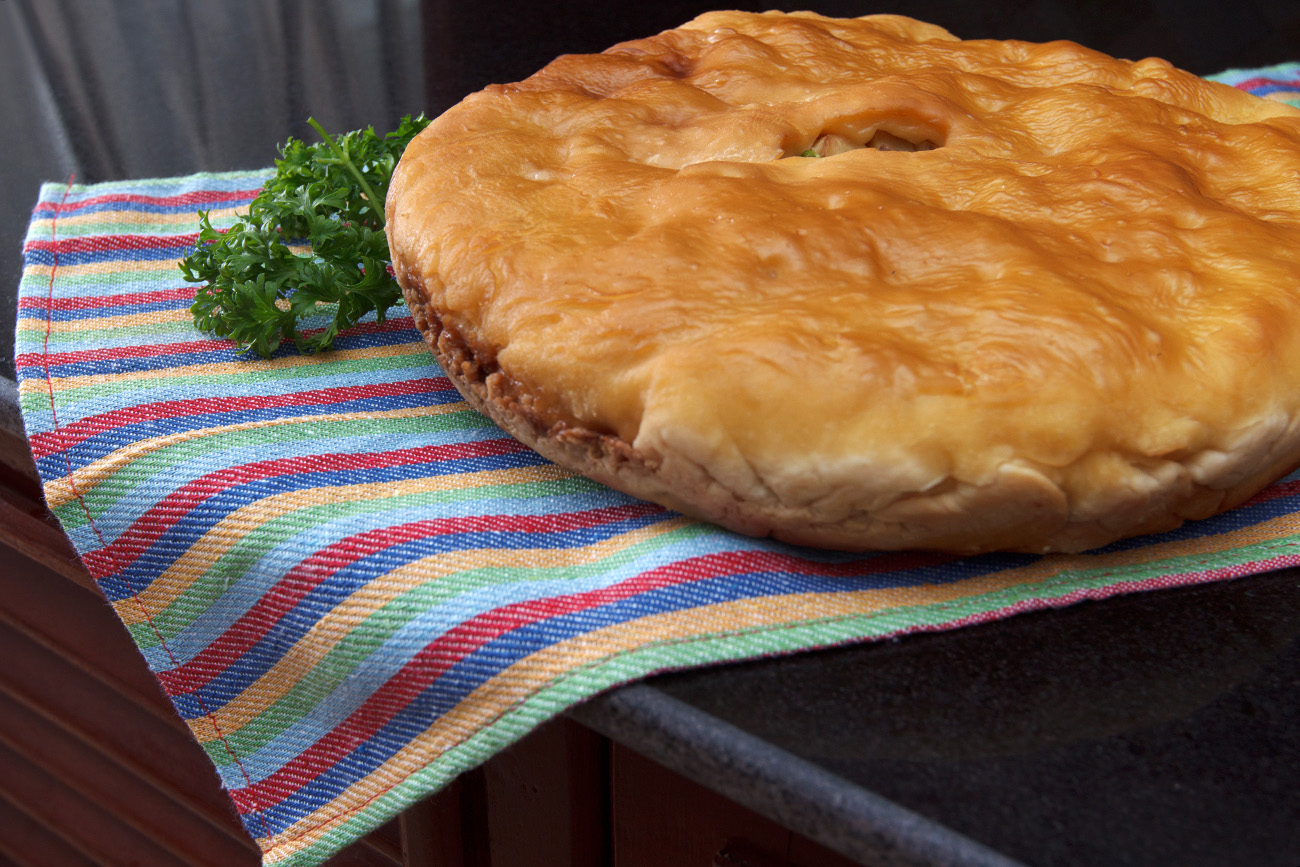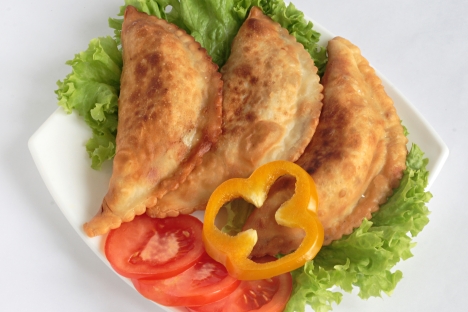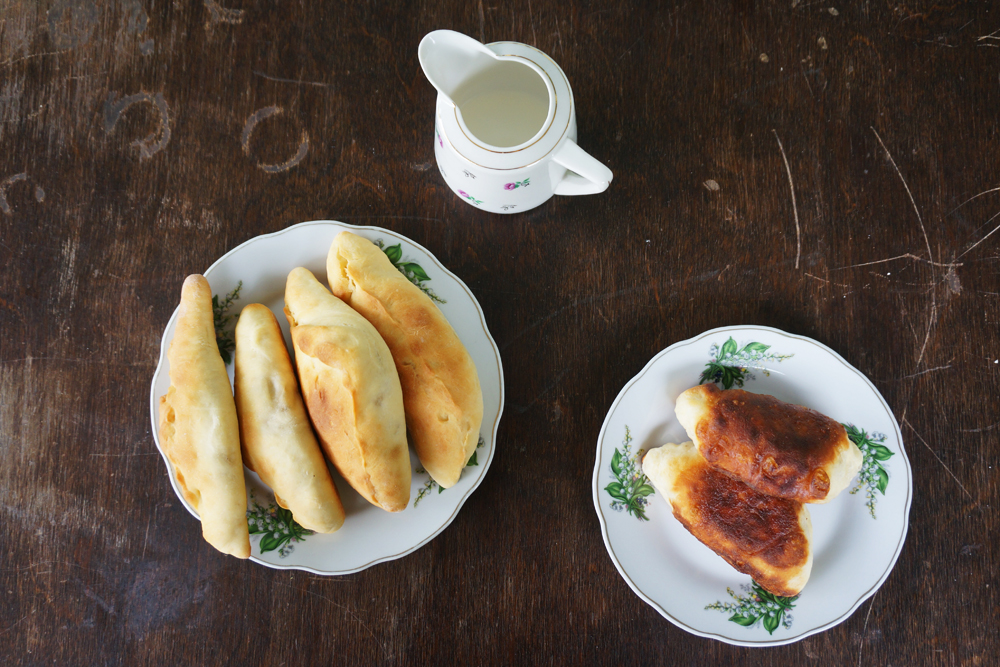Kurnik: Treat yourself to the ancient delights of the Ural Cossacks

Learn the forgotten recipe for Ural Mountain chicken pie.
Shutterstock / Vostock-PhotoToday’s descendants of the Cossacks are skeptical about a connection between their Ural pie known as курник (kurnik) and the dish of the same name eaten in the rest of Russia. They point out that the stress in their pie’s name falls on the last syllable, and say the term has nothing to do with the Russian word for chicken, курица.
Some elders believe that the pie used to be known as куренник (kurennik) because it was made for special gatherings of the extended Cossack household, known as a курень (kuren’). Another version holds that since the pie is baked and the broth inside boils, thick steam rises through the opening at the top, i.e. курится in Russian (emits smoke). This opening on top is the Ural kurnik's distinctive characteristic that differs it from the main Russian variety.Whichever version is correct, chicken is the main ingredient in both kurnik pies.
The Ural kurnik resemble dishes of Tatar and Bashkir cuisines in terms of baking process and ingredients. Both those nationalities also bake meat, potatoes, and onions in pastry. The only difference is that the vak belesh (a small Tatar meat pie made from batter), and the uchpochmac (a triangular variety) are much smaller than kurnik. Each of these is designed to feed a single person, while the Ural kurnik is a huge family pie.
Ingredients:
- One whole chicken, 1.2 -1.3 kg
- Potatoes, 0.5 kg
- Four bulb onions
- Wheat flour, 0.5 kg
- Kefir, 0.33 l
- Butter, 150 gr
- Two eggs
- Two bay leaves
- Pepper, salt, sugar, seasoning to taste
How to make it
1. To make the pastry whip the eggs, add salt and sugar to taste. Add 100 grams of melted butter, kefir and flour. The pastry should be soft, slightly softer than that used in the making of dumplings. Let it sit in a cool place for a while, and start making the filling.
2. Debone the chicken and chop it finely. Mix extensively with the diced potatoes and three diced onions, add salt, pepper, and seasoning to taste.
3. Put the chicken into a pot filled with cold water, add the remaining onion and the bay leaves, salt the broth and boil it until ready.
4. Split the pastry into two uneven portions (roughly 2/3 and 1/3), and save a small piece as the opening’s stopper. Roll up the larger portion and put it on a pre-buttered form. Traditionalists use a cast-iron frying pan, but a round pallet will also do.
5. Place the filling on the rolled-up layer of pastry, add the bay leaves, and spread what's left of the butter evenly over the filling. Roll up the smaller portion of the pastry; it should be broad enough to completely cover your pie. Pinch the edges of the two layers properly, lest they come apart under the steam’s pressure. Make a small hole in the center of the pie to allow the steam to escape. Shape the opening as a cross with a pair of scissors. Place the pastry stopper over the opening.6. Pour the melted butter on the pie and put it in the oven pre-heated to 180 degrees Centigrade. After about 40 minutes, take the pie out and pour the filtered broth into the opening. Pour slowly, and make sure the broth fills the entire volume. You will no longer need the stopper, as the broth will be evaporating through the opening. Put the pie in the oven, and increase the temperature to 200-220 degrees. Half an hour later, pour more broth into the pie, again making sure the liquid takes up the entire space. After another 40 minutes, your Ural kurnik will be ready. Checking readiness is easy - it should have a hard golden crust, and will give off an unmistakable aroma of stewed meat and potatoes.
A house graced with the smell of freshly baked pie will always be blessed with peace and harmony!
If using any of Russia Beyond's content, partly or in full, always provide an active hyperlink to the original material.
Subscribe
to our newsletter!
Get the week's best stories straight to your inbox

